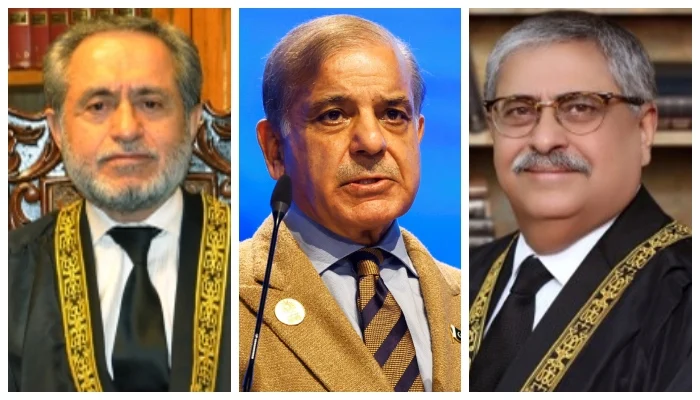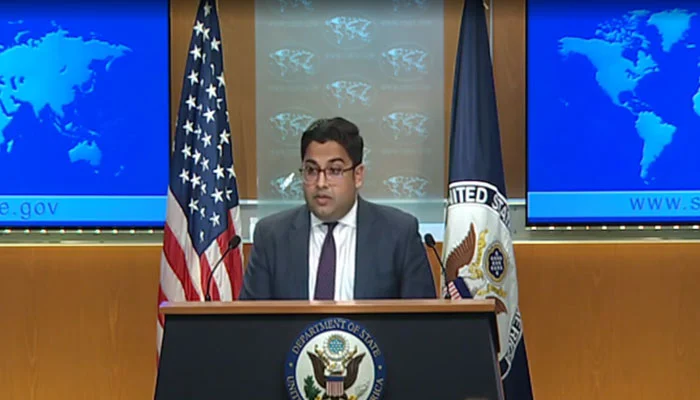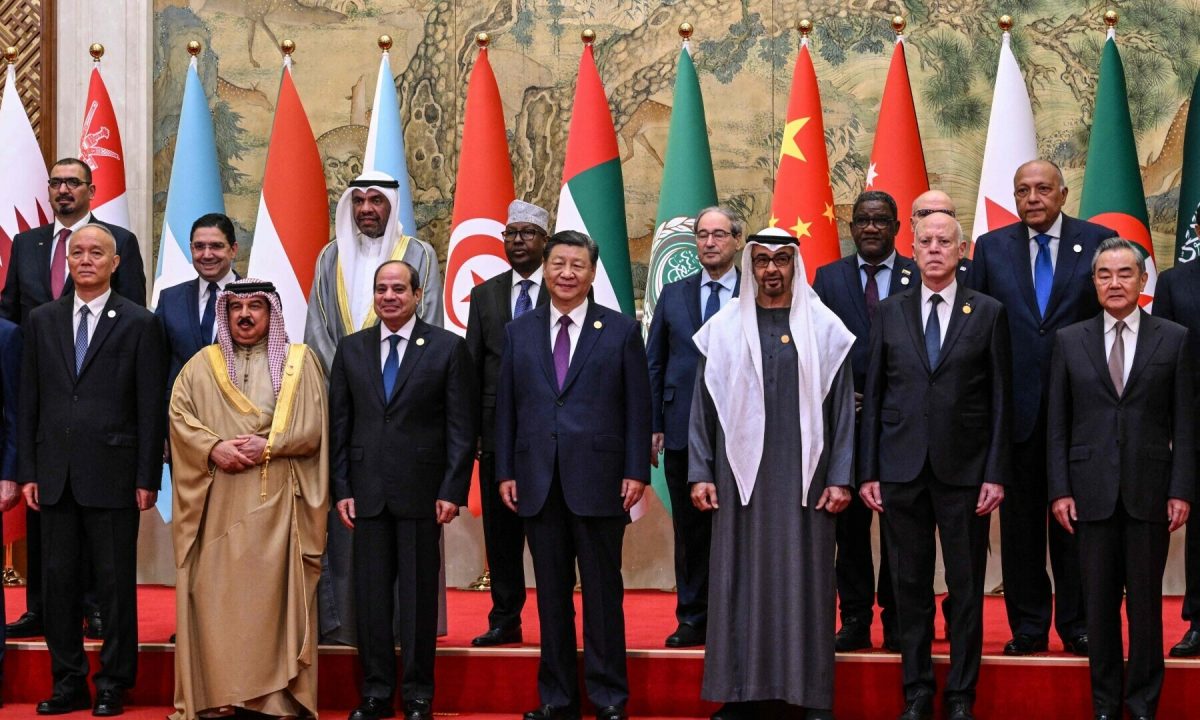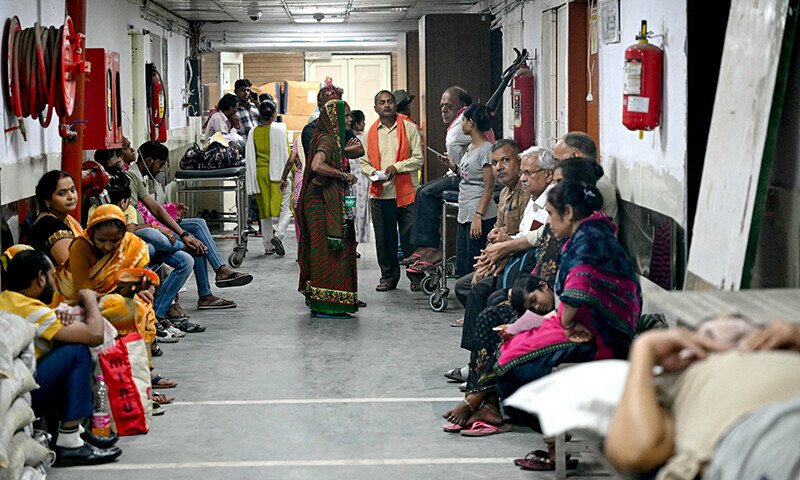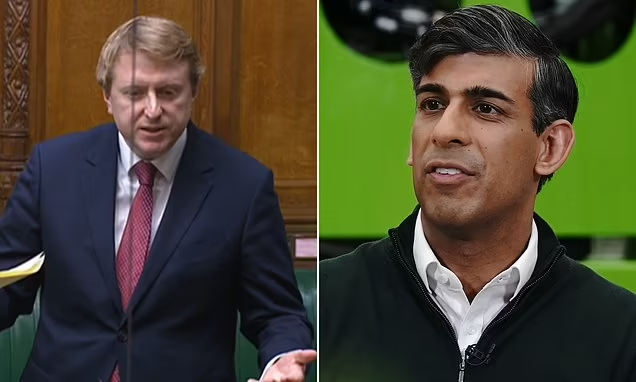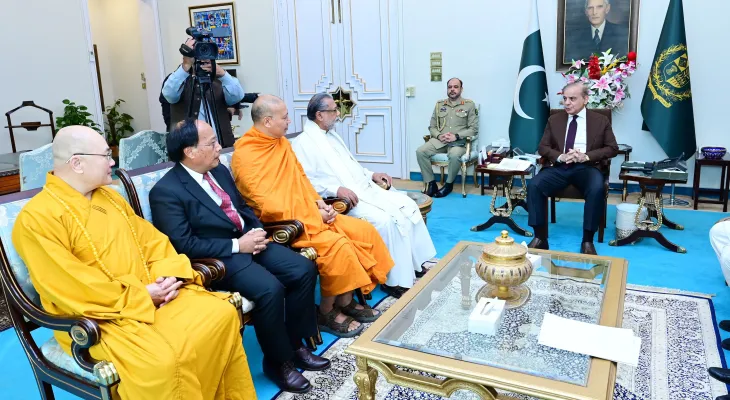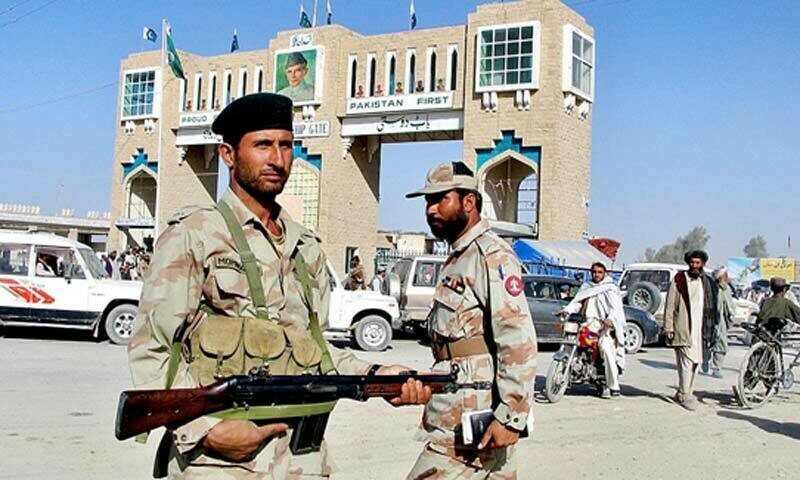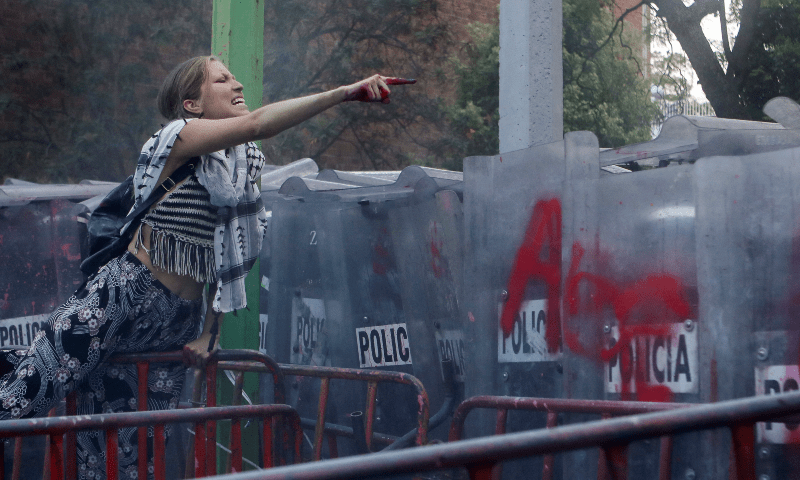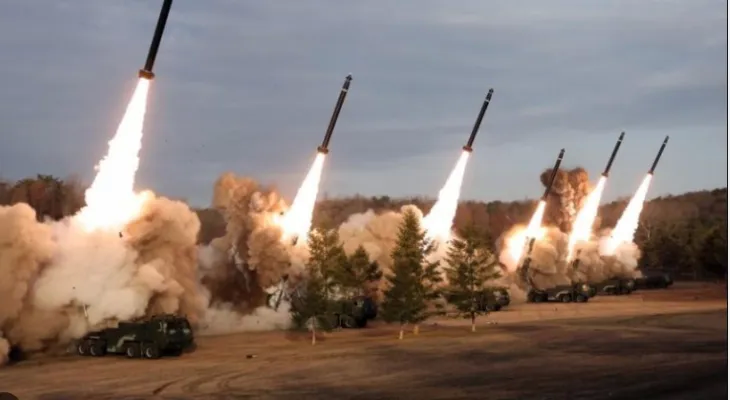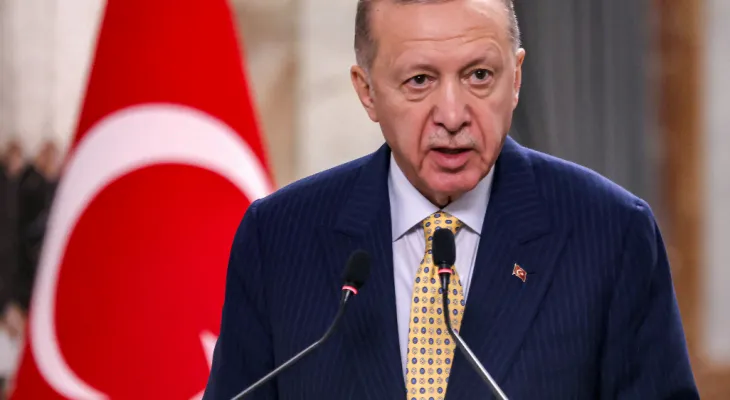North Korea fired a salvo of short-range ballistic missiles early Thursday, Seoul’s military said, hours after Pyongyang sent hundreds of trash-filled balloons across the border to punish South Korea.
The launch follows a failed attempt by the nuclear-armed North to put a second spy satellite into orbit on Monday, shortly after Seoul, Beijing and Tokyo held a rare summit and called for Pyongyang to give up their nukes.
Kim Jong Un’s powerful sister on Thursday referred to the balloon barrage, which reportedly contained animal faeces, as “sincere presents” for the South in a statement, saying they were justified retaliation for anti-Kim propaganda sent northwards by activists.
North Korea also hit back at the UN Security Council, which will hold a meeting Friday to discuss the failed satellite launch, which violated a raft of UN sanctions on Pyongyang’s use of ballistic technology.
Early Thursday, Seoul’s military said it had detected the launch of what is suspected to be “around 10 short-range ballistic missiles”, fired into waters east of the Korean peninsula.
The missiles flew around 350 kilometres (217 miles), Seoul’s Joint Chiefs of Staff said, calling the launch a “provocation” and saying it was analysing the specifics alongside the United States and Japan.
Japan also confirmed the launch, with Prime Minister Fumio Kishida telling reporters the ballistic missiles “appeared to have fallen outside of Japan’s Exclusive Economic Zone.”
Tokyo “strongly condemns” the launch, Kishida said, adding they had already lodged a protest.
Kishida had been in Seoul on Monday to meet South Korea’s President Yoon Suk Yeol and Chinese Premier Li Qiang for the countries’ first trilateral summit since 2019, where they reaffirmed their commitment to the “denuclearisation of the Korean Peninsula”.
North Korea said that even discussing denuclearisation was a “grave provocation” that would violate the country’s constitution, changed in 2023 to enshrine its status as a nuclear state.
It conducted its failed satellite launch just hours later, which was widely condemned including by Washington, Seoul and Tokyo.
It then sent balloons across the border late Tuesday, before firing its salvo of ballistic missiles Thursday.
“It is unprecedented that such a large number of short-range missiles were fired simultaneously,” Hong Min, a senior analyst at the Korea Institute for National Unification in Seoul, told AFP.
“It appears to be the North’s protest of the ‘denuclearisation’ pledge agreed at the three-way summit and the calling for the UN Security Council meeting to discuss its satellite launch,” Hong said, calling it a “tit for tat approach”.
All signs indicate “this decision was made at the highest decision-making body,” he added.
Analysts say there is significant technological overlap between space launch capabilities and the development of ballistic missiles.
Putting a reconnaissance satellite into orbit has long been a top priority for Kim’s regime, and it claimed to have succeeded in November, after two failed attempts last year.
But Pyongyang said the rocket carrying its “Malligyong-1-1” reconnaissance satellite exploded minutes after launch due to a suspected engine problem.
In a speech released by the official Korean Central News Agency late Wednesday, North Korean leader Kim Jong Un said his country was undeterred.
“Although we failed to achieve the results we had hoped to get in the recent reconnaissance satellite launch, we must never feel scared or dispirited but make still greater efforts,” he said.
“It is natural that one learns more and makes greater progress after experiencing failure,” he said, according to the transcript of the speech, given at the Academy of Defence Sciences.
Also on Thursday, North Korea released a statement calling UN Secretary-General Antonio Guterres “the most spiritless and weak-willed secretary-general in the history of the United Nations” ahead of the UN Security Council meeting on the launch.
Pyongyang said it had to express “deep concern about the fact that the UNSC is going to convene an open meeting again to call the DPRK’s legitimate satellite launch into question,” said the statement by Kim Son Gyong, a North Korean foreign ministry official.
For the North, “the launch of a military reconnaissance satellite is an inevitable undertaking for bolstering up the might of self-defence,” he added.
Seoul claims Kim received Russian technical assistance for its successful November launch in return for sending containers of weapons to Moscow for use in Ukraine.


